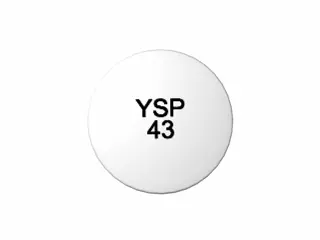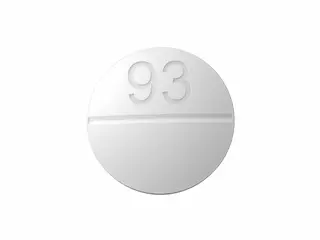Gastrointestinal Health
Discover a wide range of effective products to support your gastrointestinal health. Find supplements, probiotics, digestive aids, and remedies designed to promote digestion, soothe discomfort, and maintain a balanced gut. Shop now for trusted solutions that help you feel your best every day.
Gastrointestinal health is crucial for overall well-being. Problems like acid reflux, indigestion, constipation, and diarrhea can disrupt daily life. Many medications help manage these issues effectively. Here, we review popular drugs used to treat gastrointestinal conditions.
Aciphex (Rabeprazole) is a proton pump inhibitor (PPI). It reduces stomach acid production. Aciphex is often prescribed for GERD (gastroesophageal reflux disease) and ulcers. Patients typically notice symptom relief within a few days. It is generally well tolerated. Common side effects include headache and nausea. Aciphex’s once-daily dosing is convenient for long-term treatment.
Asacol (Mesalamine) is used to treat inflammatory bowel diseases like ulcerative colitis. It is an anti-inflammatory medication targeting the colon. Asacol helps reduce inflammation, preventing flare-ups and promoting remission. It is available in delayed-release tablets. Side effects may include abdominal pain and diarrhea. Many patients find Asacol effective for maintaining gut health.
Colospa (Hyoscine Butylbromide) is an antispasmodic agent. It helps relieve cramps and spasms in the gut. Colospa is commonly used for irritable bowel syndrome (IBS) and other gastrointestinal discomforts. It works by relaxing the muscles in the digestive tract. Side effects are usually mild, including dry mouth or dizziness. Colospa provides quick relief from pain and discomfort.
Imodium (Loperamide) is an anti-diarrheal medication. It slows intestinal movement to reduce diarrhea frequency. Imodium is effective for acute or chronic diarrhea. It acts quickly, often within hours. Patients should be cautious using it with infections causing diarrhea, as it may worsen symptoms. Common side effects include constipation and dizziness. Imodium is a staple for managing diarrhea symptoms.
Maxolon (Metoclopramide) helps with nausea and vomiting. It also promotes gastric emptying, beneficial for gastroparesis. Maxolon is often prescribed for reflux and indigestion. It improves stomach motility, aiding digestion. Side effects can include drowsiness and restlessness. Use is typically limited to short durations due to potential neurological side effects. Maxolon is useful for patients with delayed gastric emptying.
Motilium (Domperidone) is similar to Maxolon. It alleviates nausea and vomiting by enhancing gastric motility. Motilium is often preferred for less central nervous system side effects. It is valuable for functional dyspepsia and delayed stomach emptying. Side effects are rare but can include headache and dry mouth. Motilium supports better digestion and symptom relief.
Nexium (Esomeprazole) is another proton pump inhibitor. Nexium effectively reduces stomach acid in GERD and peptic ulcer disease. Many patients experience fewer heartburn episodes with Nexium. It is taken once daily, providing lasting acid suppression. Side effects may include headache, diarrhea, and abdominal pain. Nexium is widely used and trusted for acid-related disorders.
Pentasa (Mesalamine) is related to Asacol. It treats inflammatory bowel diseases by delivering mesalamine throughout the intestines. Pentasa helps maintain remission in ulcerative colitis and Crohn’s disease. Side effects include headache, nausea, and abdominal discomfort. It is an important drug for long-term inflammation control.
Pepcid (Famotidine) is an H2 blocker. It decreases stomach acid by blocking histamine receptors. Pepcid is used for heartburn, GERD, and stomach ulcers. It works faster than PPIs but provides shorter acid control. Side effects are uncommon but may include headache and dizziness. Pepcid is a good option for mild to moderate acid reflux.
Prevacid (Lansoprazole) is a PPI similar to Nexium and Aciphex. It reduces acid production for conditions like GERD, Zollinger-Ellison syndrome, and ulcers. Prevacid offers once-daily dosing with effective symptom relief. Side effects include headache and nausea. Prevacid is well tolerated and widely prescribed.
Prilosec (Omeprazole) is one of the first widely used proton pump inhibitors. It suppresses stomach acid to treat GERD, ulcers, and acid-related damage. Prilosec is available both over-the-counter and by prescription. Side effects are rare but may include indigestion or headache. It has a long track record of safety and efficacy.
Protonix (Pantoprazole) is a proton pump inhibitor used for GERD and erosive esophagitis. It is effective in reducing acid and promoting healing. Protonix is generally taken once daily and can be used long term. Common side effects are headache and diarrhea. Protonix offers reliable acid control for severe reflux.
Reglan (Metoclopramide) shares the same active ingredient as Maxolon. It treats nausea, vomiting, and gastroparesis by improving stomach emptying. Reglan must be used carefully due to possible side effects like fatigue or restlessness. It is effective when other treatments fail and requires medical supervision.
Xifaxan (Rifaximin) is an antibiotic used to treat traveler's diarrhea and hepatic encephalopathy. It targets bacteria in the gut without significant absorption into the bloodstream. Xifaxan also helps manage IBS with diarrhea by altering gut flora. Side effects are minimal, making it well tolerated. It is a modern option for bacterial-related gastrointestinal issues.
In conclusion, many medications support gastrointestinal health. Proton pump inhibitors like Nexium, Prilosec, and Aciphex dominate acid-related disorder treatment. Mesalamine-based drugs such as Asacol and Pentasa control inflammation in bowel diseases. Antispasmodics and motility agents like Colospa, Maxolon, and Motilium aid digestion and reduce symptoms. Imodium effectively stops diarrhea while Xifaxan addresses bacterial causes. Each drug has specific uses, benefits, and possible side effects. Always consult a healthcare professional before starting any medication for gastrointestinal conditions.












